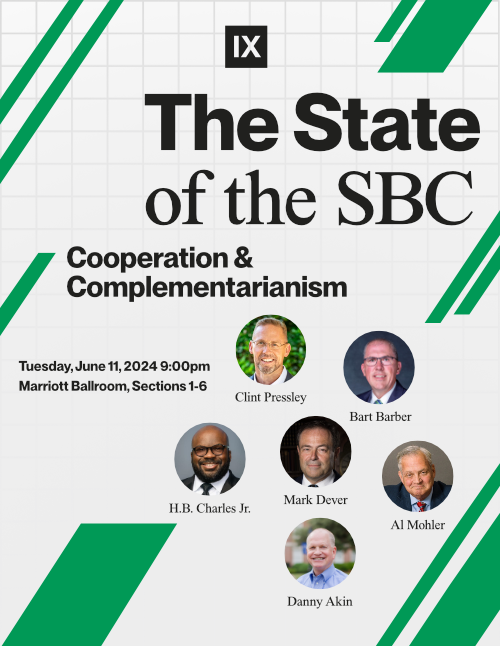Speak Only What Is Good to Give Grace
Take a glance at Twitter, cable news, or your most active group texts. To say that kind words have been in short supply over the past year would be an understatement. On any number of issues, consider how many words people have deployed to divide rather than reconcile, to hurt rather than heal, to demean rather than lift up. Sticks and stones still break bones, but you can’t tell me words don’t hurt.
From your computer to your church to your kitchen table, what’s been your strategy for choosing your words this year? As those who confess and serve the God who speaks, who created the world by his Word, and whose Word gives life, have we forgotten how eternally important and powerful the gift of speech is? After all, the Triune God has revealed himself through his words. In Christ, he has freed us to use our speech for astonishing and enduring ends.
How do I know this? The book of Ephesians.
Ephesians begins with soaring expressions of God’s sovereignty over all things (1:11). Paul shows us God’s election of and love for his people from before the foundation of the world (1:4). He considers how God raises us from spiritual death to spiritual life (2:1–5). He unfolds how God includes us in his cosmic plans to unite not just Jew and Gentile (2:15) but all things in Christ (1:10). In Ephesians, Paul leads us to the breathtaking mountaintop vistas of God’s glory.
And yet, he doesn’t leave us there. He calls us to respond—or, more specifically, to speak. Paul draws out for us how God’s great work of redemption in Christ transforms our lives, and in so doing transforms our speech. Paul writes in Ephesians 4:29: “Let no corrupting talk come out of your mouths, but only such as is good for building up, as fits the occasion, that it may give grace to those who hear.”
Read that again! Ephesians teaches that God’s glorious purposes for the universe and his people in Christ extend to our speech. Apart from faith in Christ, sinful hearts spew words that amplify the death and decay of the fallen world. But now in Christ we can use our speech to give what was previously impossible: grace.
Let’s consider two ways this teaching should shape our speech.
1. God uses your speech for ends you can’t fully fathom.
I bet you can easily recount words that have hurt you. But I hope you can also remember times when a fellow Christian spoke intentionally to build you up—when someone surprised you with a kind response when you expected a harsh word or shared the gospel with you when you felt far from God. In those ordinary moments, God did something eternally glorious through your brother or sister’s speech. He used those believers to speak what is good in order to give grace.
What if we really believed our words could give grace? I suspect we would start to look for ways to deploy our words for this eternally good end. What if—based on Ephesians 4:29—we looked at our church’s weekly gathering as an indispensable opportunity to speak good into the lives of others? Given what we read here in Ephesians, the God who speaks must get particular glory by using the words of his redeemed people to accomplish goals that we cannot fully fathom on this side of eternity.
We don’t yet comprehend the extent of God’s grace to his children, but we know he uses our speech to extend a measure of grace.
2. God uses your speech for what lasts.
If we took an inventory of everything we wasted over the last year, how many words would make the list?
As with any other scarce resource, even the most verbose have a limited amount of words in a lifetime. What a tragedy it would be to come to the end of our lives and realize that we wasted our words on speech that had no lasting value.
But if we speak what is good to give grace, then God uses our ordinary words for his extraordinary purposes. He even uses them to build his people together into his dwelling place in the age to come (2:22). In Christ, God means to use our speech to build what lasts.
We shouldn’t reduce this command to mere positivity or flattery. The speech that gives grace is saturated in the gospel! This means sometimes delivering a hard word when it’s appropriate because that will do the most eternal good. It means apologizing when we’re wrong or encouraging someone in their gifts, even when that means ours take a backseat.
Consider what a wonderfully countercultural place our local churches would be if we all strategically planned to use words for what will be celebrated on the last day. God’s Christ-exalting, universe-transforming, destiny-shifting plans in Christ include deploying our words for eternal ends. In this present cultural moment where words seem to be many but good ones seem so few, let’s make it our ambition to spend the years the Lord gives us speaking what is good to give grace.
My generation was rightly summoned, “Don’t waste your life!” In order to fulfill that call, we need to hear another one “Don’t waste your words!”
Our days and our words are numbered, and before long we will have to give an account to God for how we used them. His words are always true, always good, and never wasted. As his children, may the words we speak bring glory to his great name and grace to all his people.









